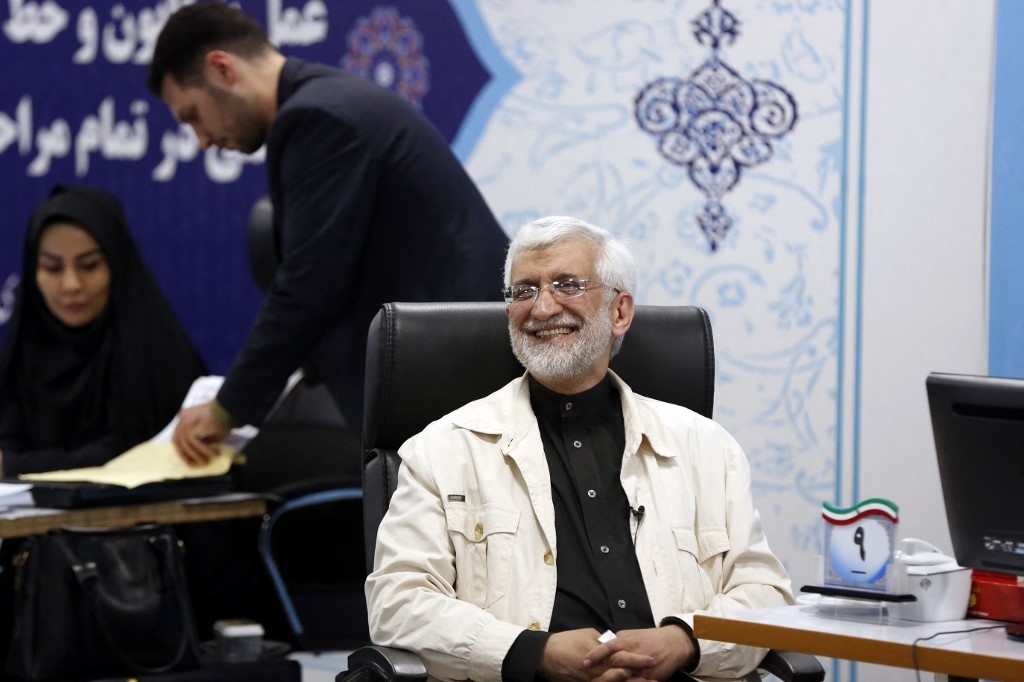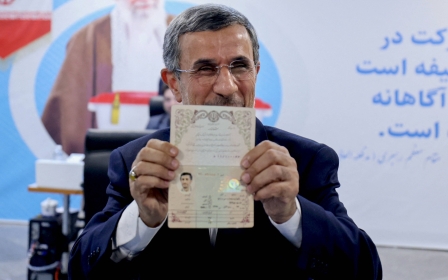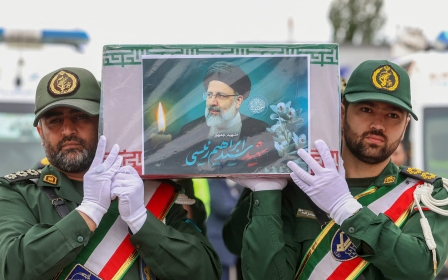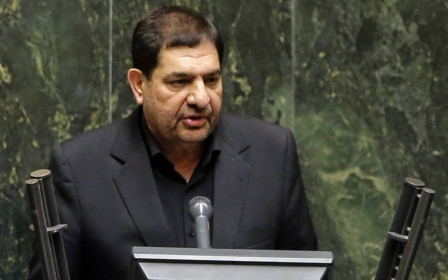Iran approves six candidates for presidential election

Iran has approved six candidates for the presidential election to be held on 28 June, called following the sudden death of president Ebrahim Raisi.
The Guardian Council, which oversees elections in the Islamic Republic, selected the six from 80 registered candidates.
Those chosen are largely conservatives, with only one reformist allowed to stand.
Massoud Pezeshkian, who represents Tabriz in Iran's parliament, had been critical of the government's lack of transparency during nationwide protests triggered by the September 2022 death in police custody of 22-year-old Kurdish woman Mahsa Amini.
Also chosen were Parliament Speaker Mohammad Bagher Ghalibaf, former nuclear negotiator Saeed Jalili and former interior minister Mostafa Pourmohammadi, along with Tehran mayor Ali Reza Zakani and Amirhossein Ghazizadeh Hashemi, Raisi’s vice president.
New MEE newsletter: Jerusalem Dispatch
Sign up to get the latest insights and analysis on Israel-Palestine, alongside Turkey Unpacked and other MEE newsletters
A number of high-profile figures who had submitted their candidacy were not allowed to stand, including ex-parliament speaker Ali Larijani and former president Mahmoud Ahmadinejad.
Four women had also registered their candidacy but were disqualified, as has been the case for all presidential elections since the 1979 Islamic revolution.
Reformists in Iran have said that despite the death of conservative president Raisi in a helicopter crash on 19 May, his faction would likely manage to keep its grip on power.
Earlier this week, the pro-reformist Ham Mihan discussed the topic with analysts and all of them emphasised that, despite low voter participation in previous elections, the government would stick to conservative candidates.
Mohammad Mohajeri, a political analyst, told the daily that the establishment prefers a weak president, and the election set-up was designed with this in mind.
"The political faction that is now in favour of the government, in fact, the fundamentalist movement that supports the government, seeks to prevent the formation of a rational space in society for this election. Fundamentalists seek to elect a president even weaker than the previous president under such circumstances," he said.
Analyst Hossein Naghashi highlighted the powerful Guardian Council's role in all elections through the vetting of candidates. According to Naghashi, even the dangers of Donald Trump's re-election in the upcoming US presidential election would not change the council’s policies.
"I don't see any change or prospect of change in these policies. The system will not hold a more open, transparent election with the participation of individuals, political figures, and opposition parties critical of the current situation," he said.
Middle East Eye delivers independent and unrivalled coverage and analysis of the Middle East, North Africa and beyond. To learn more about republishing this content and the associated fees, please fill out this form. More about MEE can be found here.




